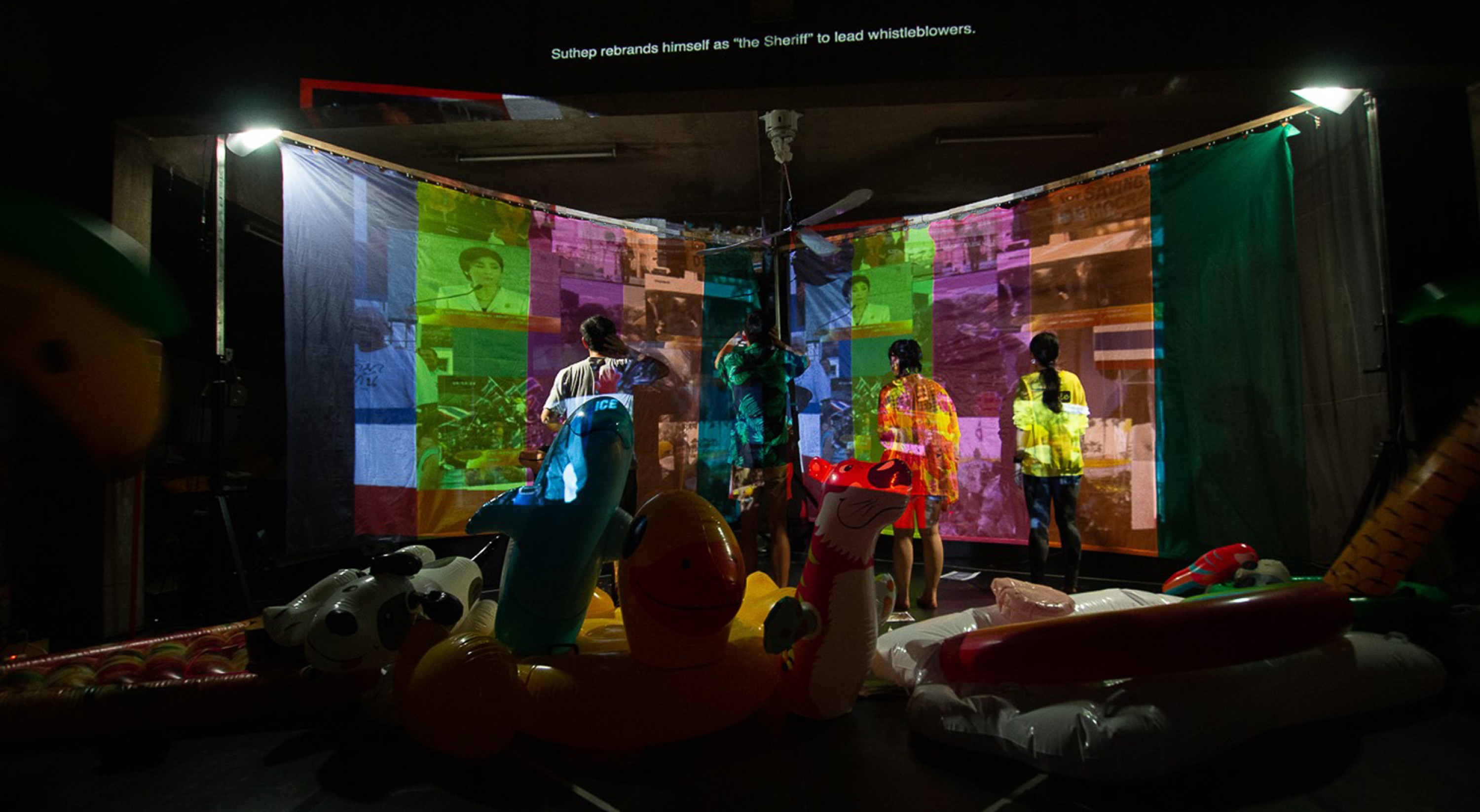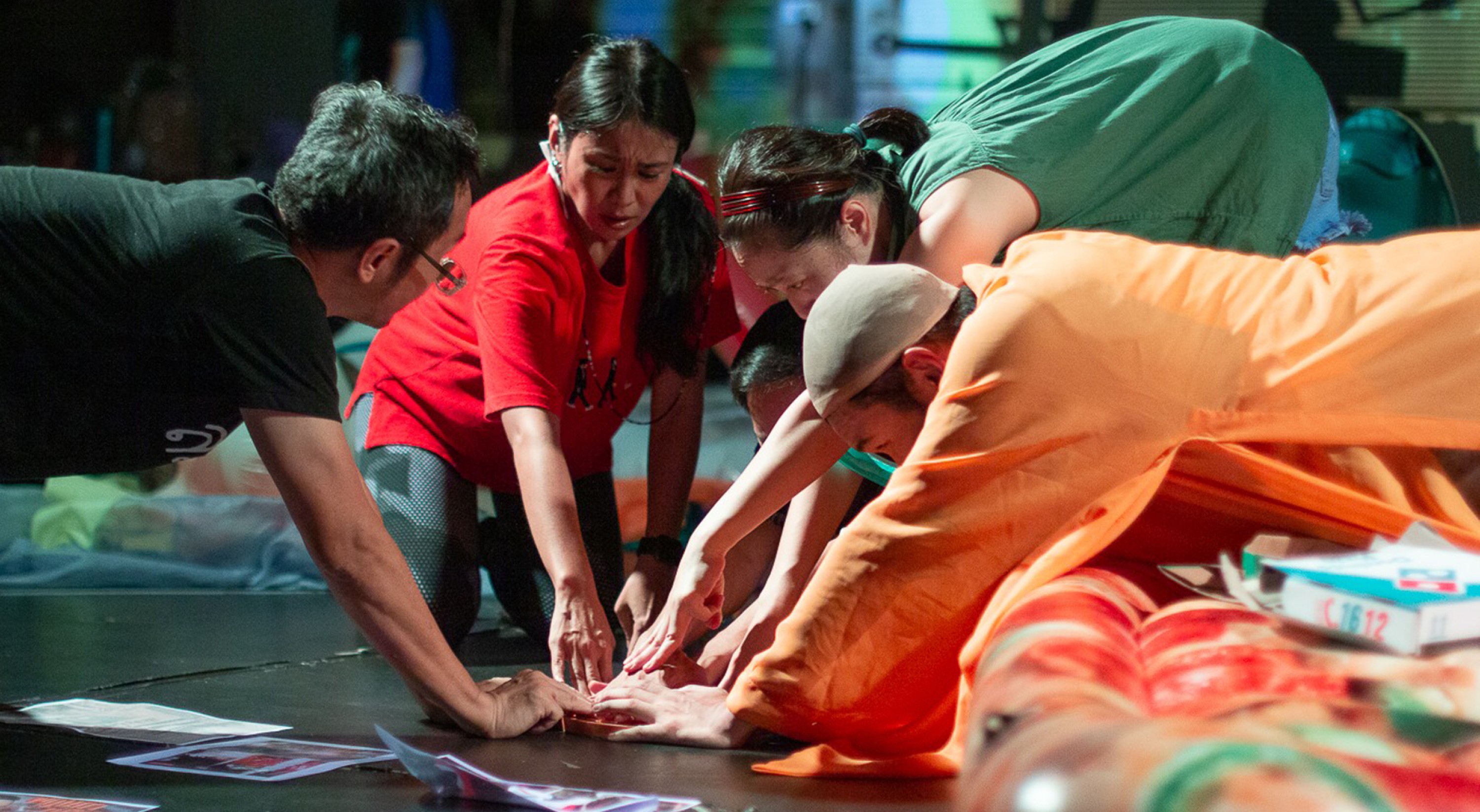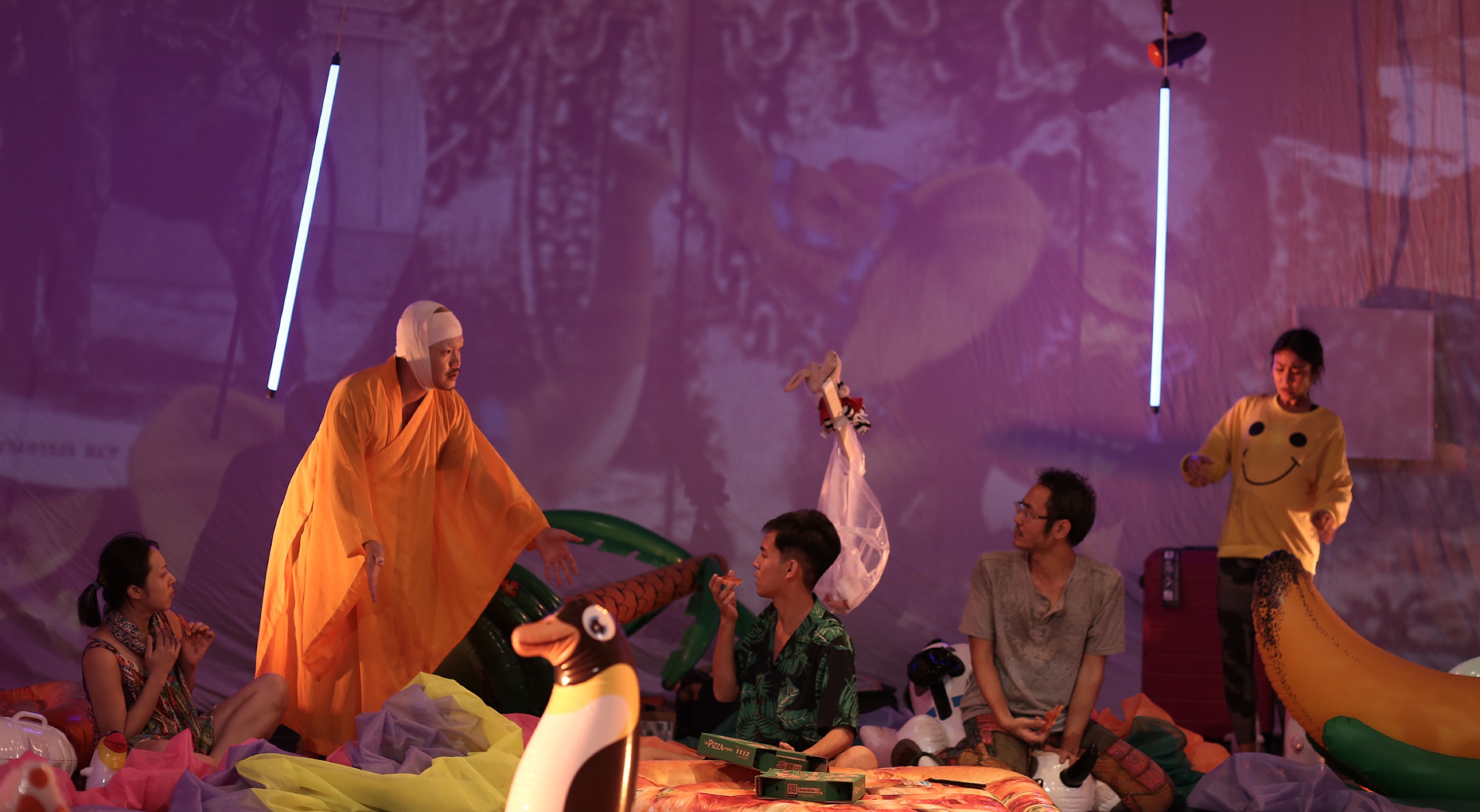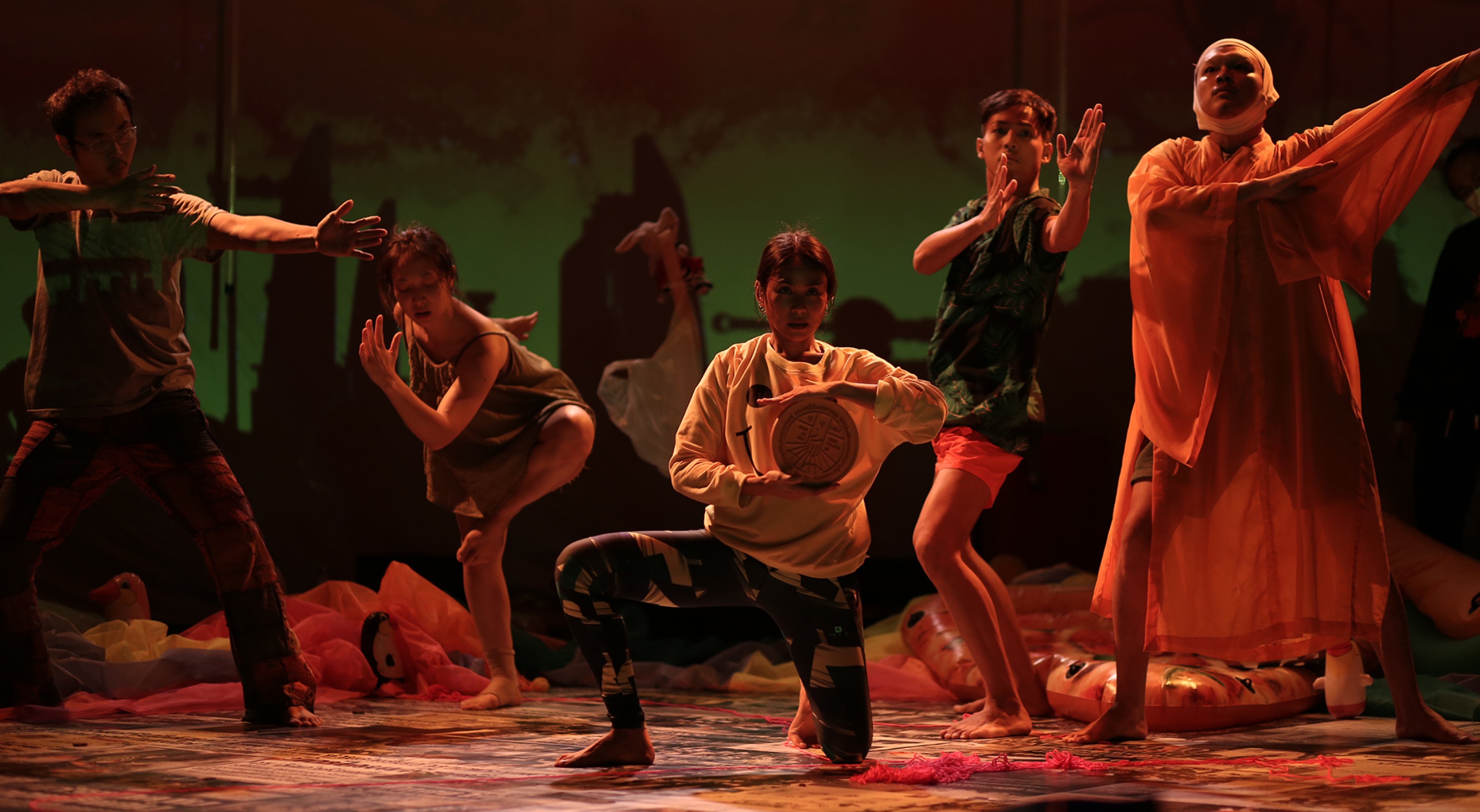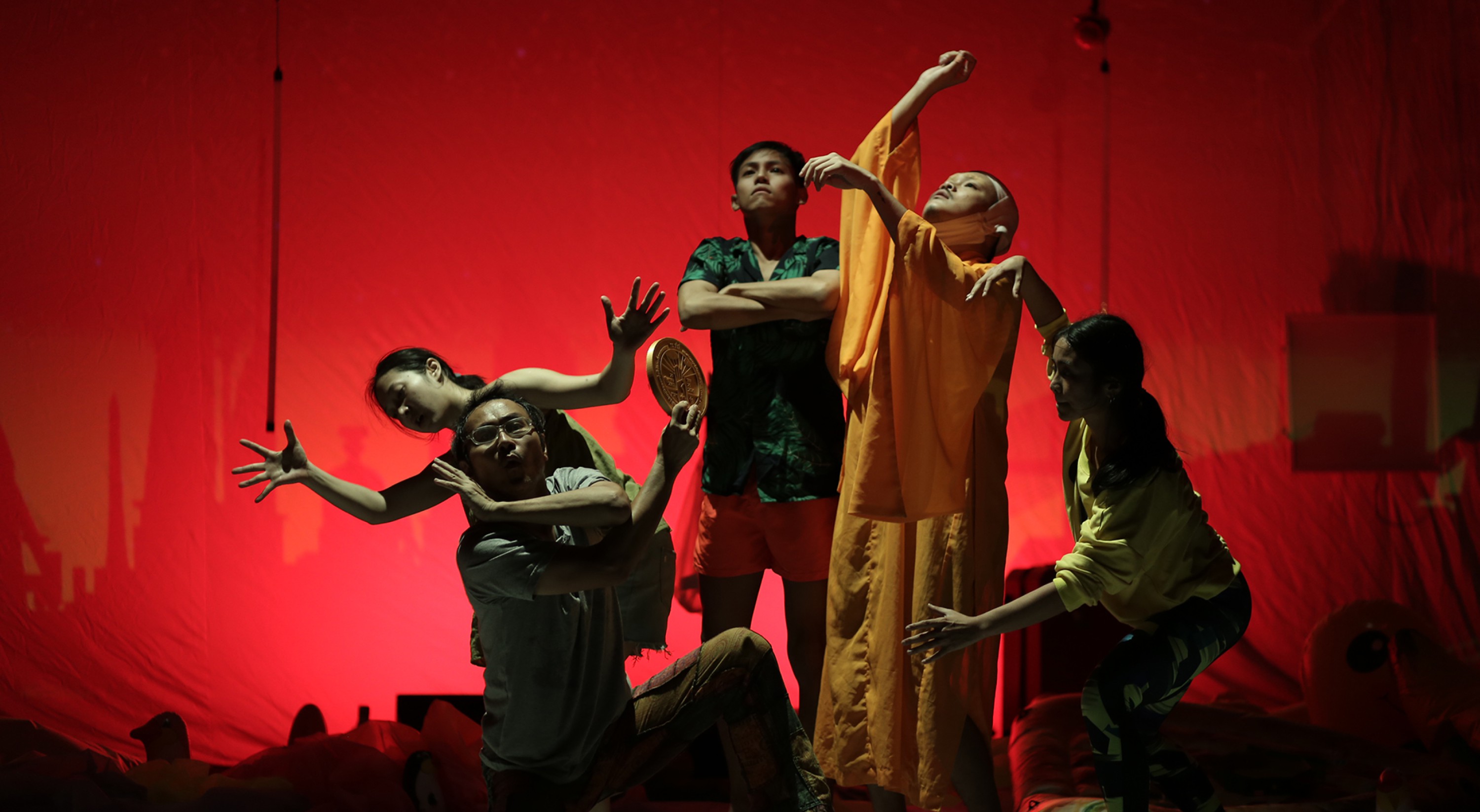Wichaya Artamat
Four Days in September (The Missing Comrade)
octoberoct 8
octoberoct 13 – 17
Concept and direction, Wichaya Artamat
Text, Ratchapoom Boonbanchachoke, and Wichaya Artamat
With Jaturachai Srichanwanpen, Nualpanod Nat Khianpukdee, Saifah Tanthana, Suranya Poonyaphitak, and Witwisit Hiranyawongkul
Dramaturgy, Ratchapoom Boonbanchachoke
Stage and lighting design, Pornpan Arayaveerasid, and Rueangrith Suntisuk
Kinetic design, Laphonphat Duangploy
Sound, Chanapon Komkham
Costumes, Nicha Puranasamriddhi
Make-up, Punika Rangchaya
Festival d’Automne à Paris is the executive producer of the French tour of this show.
The show is coproduced by MC93 – Maison de la Culture de Seine-Saint-Denis and Festival d’Automne à Paris
In association with MC93 – Maison de la Culture de Seine-Saint-Denis and Festival d’Automne à Paris.
A coproduction by Kunstenfestivaldesarts (Brussels) ; Wiener Festwochen ; Black Box Teater (Oslo) ; MC93 – Maison de la Culture de Seine-Saint-Denis (Bobigny) ; and Festival d’Automne à Paris
In association with MC93 – Maison de la Culture de Seine-Saint-Denis (Bobigny) ; and Festival d’Automne à Paris
With support from ONDA
Things and people disappear and, sometimes, reappear. Events repeat themselves: a birthday party between friends, a coup d’état, and the kidnapping of demonstrators. But history goes on. In his latest creation, Wichaya Artamat continues his theatrical exploration of Thailand’s political history.
September 1990. A group of friends is gathered together in a living-room. They are celebrating the anniversary of an old ceiling fan. They drink, eat and make jokes. One of them disappears. The apartment overflows with news from outside and snippets of conversations that make no sense. Then someone, who resembles the disappeared friend, reappears. In September 2020, the group gathers together once again to celebrate the anniversary of the ceiling fan. Four Days in September (The Missing Comrade) uses disappearance and reappearance as a vehicle for recounting Thailand’s political history. Four days which trace thirty years of a far more wide-reaching story, punctuated by military coups, social unrest and repression. By means of his investigations into temporality, and the articulation of the intimate and the collective, the theatre of Wichaya Artamat turns the stage into a means for reflecting on how history carries on regardless, beneath our very eyes, and our relationship with it.
In the same place
